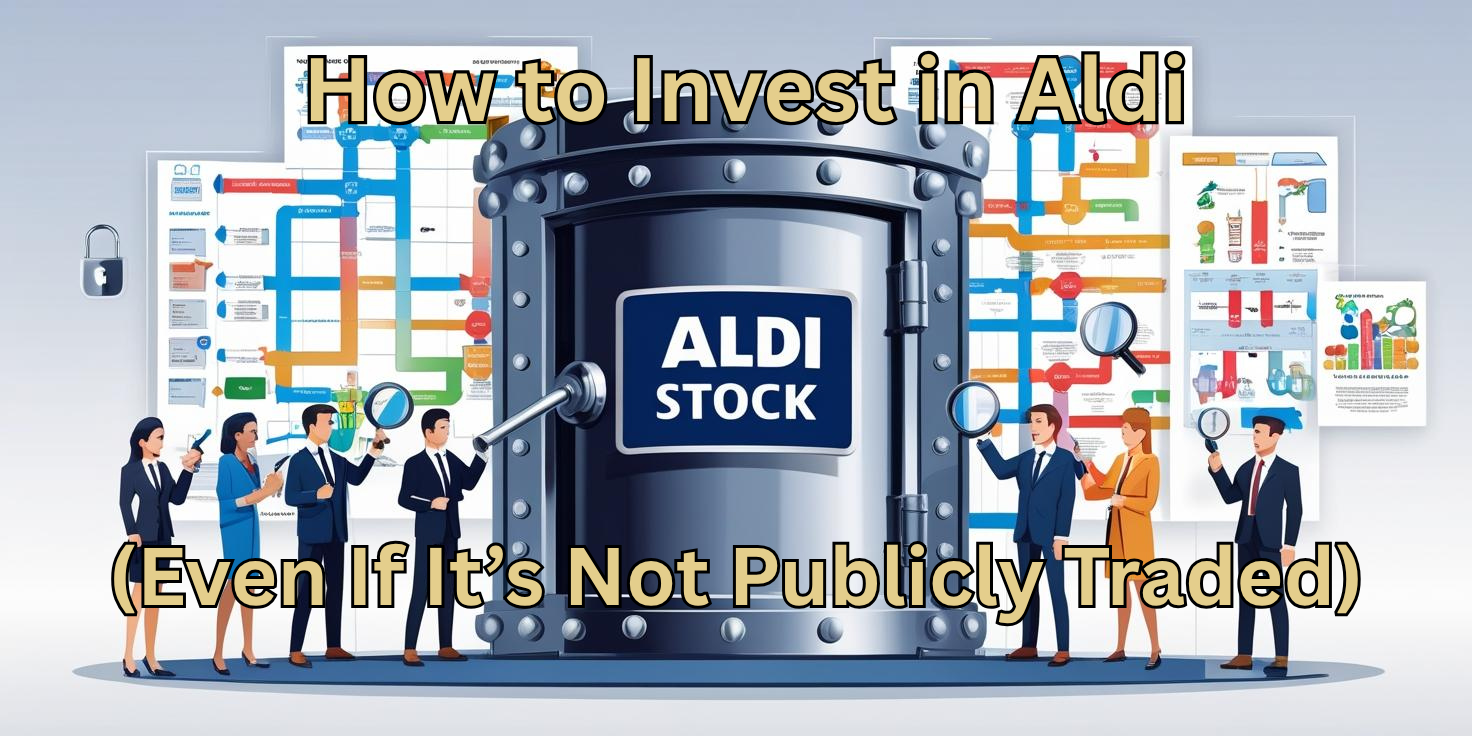How to Invest in Aldi (Even If It’s Not Publicly Traded)
Are you among the many investors intrigued by the phenomenal growth and disruptive force of Aldi in the global grocery market, constantly searching for a way to tap into its success? The buzz around Aldi’s expansion, its fiercely loyal customer base, and its unique business model often leads to one pressing question: Can you buy Aldi stock?
For those looking to add a slice of this discount retail giant to their investment portfolio, the answer might not be as straightforward as with publicly listed companies.
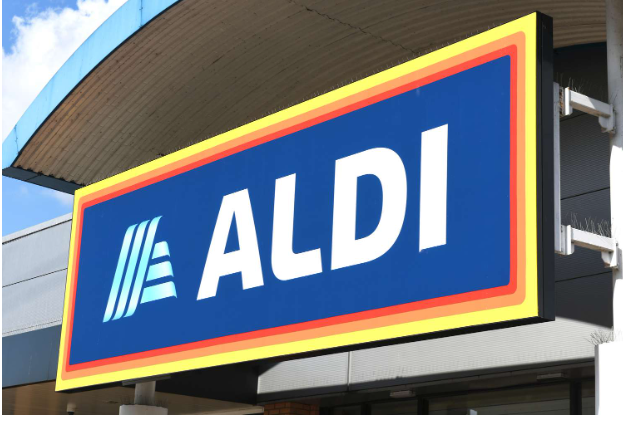
Introduction to Aldi
Aldi, a name synonymous with discount grocery shopping, has carved out a significant niche in the retail world. Its no-frills approach, coupled with a focus on high-quality private-label products, has resonated with consumers globally, leading to remarkable growth and a substantial market presence. Understanding the fundamental structure and operations of Aldi is crucial for anyone considering its investment potential, even indirectly.
What Parent Company Owns Aldi?
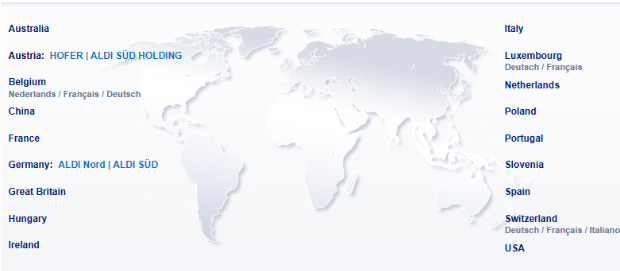
Unlike many large retailers with a single, publicly traded parent company, Aldi operates under a unique dual structure. The company is split into two companies known as Aldi companies: Aldi Nord (Aldi North) and Aldi Süd (Aldi South).
These two Aldi companies are separate legal entities, each with distinct operations and ownership structures, but both are part of the larger Aldi organization, sometimes referred to as the Aldi companies.This split occurred in 1960 due to a disagreement between the two founding Albrecht brothers, Karl and Theo, over whether to sell cigarettes. While legally and financially separate, both entities share the core Aldi business principles of offering a limited assortment of goods at low prices. The parent company Aldi Einkauf GmbH, plays a key role in the ownership structure of both Aldi Nord and Aldi Süd.
Aldi Nord is headquartered in Essen, Germany, and primarily operates Aldi discount stores in several European countries, including Belgium, Denmark, France, Luxembourg, the Netherlands, Poland, Portugal, Spain, and parts of Germany. It also owns the discount supermarket chain Trader Joe’s in the United States.
Aldi Süd is headquartered in Mülheim an der Ruhr, Germany, and its operations span across countries such as Australia, Austria, China, Ireland, Italy, Slovenia, Switzerland, the United Kingdom, the United States (excluding Trader Joe’s), and other parts of Germany.
It’s important to note that neither Aldi Nord nor Aldi Süd is a publicly traded company. All the stock is held by the Albrecht family, making Aldi a private company and a family owned business. As a result, there is no Aldi stock symbol or Aldi stock price, and it is not possible to purchase shares in Aldi due to its private ownership structure. Currently, there are no plans for an Aldi IPO. Aldi’s private structure limits direct investor financial exposure.
Aldi’s History and Expansion
Aldi’s roots stretch back to 1913, when the Albrecht family first entered the grocery business in Essen, Germany. The name Aldi, short for “Albrecht Discount,” reflects the company’s founding mission: to provide high quality products at consistently low prices. This commitment to value quickly set Aldi apart from other grocery stores and laid the groundwork for its remarkable growth.
The company’s pivotal moment came in 1960, when a difference of opinion between the Albrecht brothers led to the formation of two separate, privately owned entities: Aldi Nord and Aldi Süd. This split allowed each group to pursue its own expansion strategy while staying true to the core principles of the Albrecht family. Today, Aldi Nord and Aldi Süd operate independently but share the same dedication to efficiency, simplicity, and savings.
Aldi’s global expansion has been nothing short of impressive. With over 10,000 stores in 16 countries, Aldi has established a formidable market presence in the grocery industry. Aldi Süd is responsible for Aldi USA, bringing the brand’s unique business model and private label focus to American shoppers. Meanwhile, Aldi Nord owns Trader Joe’s, a beloved discount supermarket chain in the United States known for its curated selection and loyal customer base.
The company’s growth strategy centers on offering a streamlined assortment of high quality products, most of which are exclusive private label brands. By keeping operating costs low and passing savings on to customers, Aldi has become a major player in markets around the world. The Albrecht family’s continued ownership ensures that Aldi remains a privately owned company, focused on long-term stability and the original vision of delivering “Albrecht Discount” value to millions of shoppers.
Aldi Business Model and Operations
Aldi’s success can be largely attributed to its highly efficient and cost-conscious business model. Several key elements define its operations:
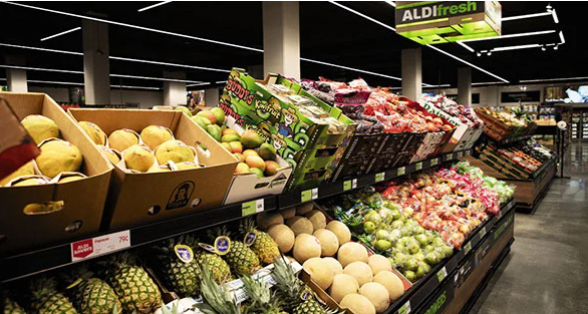
- Limited Assortment: Unlike traditional supermarkets that may stock tens of thousands of products, a typical Aldi store offers a significantly smaller selection, often around 1,500 to 2,000 Stock Keeping Units (SKUs). The average Aldi location stocks fewer items than traditional grocery chains, focusing on high-turnover essentials. This curated approach means Aldi provides a focused range of grocery products compared to other supermarket chains, which allows for greater purchasing power, streamlined logistics, and reduced inventory management costs.
- Private Label Focus: A significant portion of Aldi’s offerings consists of its own private-label brands. Aldi’s products, including organic products, are designed to deliver high quality and value, contributing to the brand’s reputation for excellence and customer trust. This strategy enables Aldi to control product quality, pricing, and branding, often offering comparable or superior quality to national brands at a lower cost.
- No-Frills Store Design: Aldi stores are typically characterized by their functional and efficient layout. These smaller stores help reduce operating costs and enhance customer convenience They often feature products displayed in their shipping cartons, minimizing the need for extensive shelving and reducing labor costs associated with stocking.
- Emphasis on Efficiency: From requiring customers to bring their own shopping bags and bag their groceries to implementing a cart rental system, Aldi’s operations are designed to maximize efficiency and minimize operational expenses.
- Strategic Expansion: Aldi has demonstrated a strategic approach to expansion, carefully selecting locations and adapting its offerings to suit local market preferences while maintaining its core value proposition.
- Strong Buying Power: Due to its scale and efficient operations, Aldi possesses significant bargaining power with suppliers, allowing it to secure favorable prices and pass those savings on to consumers.
The company focuses on efficiency, cost savings, and delivering enormous value to customers. Aldi offers special deals and unique products, which help differentiate it from Aldi’s competitors and other supermarket chains. Aldi saves money through its operational strategies—such as smaller store formats, limited product selection, and private label focus—and passes those savings on to customers.
This relentless focus on cost efficiency and value has been instrumental in Aldi’s ability to compete effectively with other grocery chains and gain market share in diverse markets worldwide.
Who Are the Largest Shareholders of Aldi?
As previously mentioned, Aldi is not a publicly traded company. The ownership of both Aldi Nord and Aldi Süd rests with the Albrecht family foundations. The two brothers, Karl and Theo Albrecht, established the foundations that now control Aldi’s ownership.
These foundations were established by the founding brothers and serve to maintain control over the companies and ensure their long-term stability and adherence to the core business principles. The exact details of the foundation structures and the beneficiaries are not publicly disclosed, reflecting the private nature of the ownership.
What Market Share Does Aldi Have?
Aldi’s market share varies significantly across different countries and regions. In its home market of Germany, Aldi holds a substantial share of the grocery retail market, consistently ranking among the top players. In the United Kingdom, Aldi has experienced significant growth in recent years, becoming a major competitor to established supermarket chains. Similarly, in Australia, Aldi has successfully captured a significant portion of the grocery market with its value proposition.
In the United States, Aldi’s market share has been steadily increasing as it continues its aggressive expansion strategy, opening new stores and attracting a growing base of price-conscious consumers.
Globally, Aldi’s combined market share makes it one of the largest grocery retailers in the world. Its consistent focus on low prices and efficient operations has allowed it to gain traction in diverse economic environments and consumer markets.
Investing in Aldi Stock
The question on many investors’ minds remains: how can one invest in the success of Aldi? Understanding Aldi’s private ownership structure is key to answering this. Aldi’s stock price is not available to the public because the company is privately held and not listed on any stock exchange. For investors interested in the grocery sector, an alternative is to consider grocery stocks of publicly traded companies, which offer exposure to the performance and stability of the grocery retail industry.
Is Aldi a Publicly Traded Company?
The straightforward answer is no, Aldi is not a publicly traded company. Both Aldi Nord and Aldi Süd operate as privately held entities, owned by the Albrecht family foundations. As a private company, Aldi does not offer franchise opportunities; all stores are company-owned and operated.
This means that their shares are not available for purchase on any stock exchange, and there is no ticker symbol to track their performance. This lack of public trading distinguishes Aldi from many of its major competitors in the retail sector.
Does Aldi Plan to Go Public?
As of the current information available, there have been no concrete announcements or strong indications that Aldi has plans to undertake an Initial Public Offering (IPO) and become a publicly traded company. The Albrecht family has historically maintained a strong commitment to private ownership, which allows them to focus on long-term strategic goals without the quarterly earnings pressures associated with public markets.
Several factors might contribute to Aldi’s preference for remaining private:
- Long-Term Vision: Private ownership allows Aldi to prioritize long-term growth and strategic initiatives without being beholden to the short-term expectations of shareholders.
- Flexibility in Decision-Making: Private companies often have more flexibility in making strategic decisions and adapting to market changes without the need for extensive shareholder approval.
- Confidentiality: Remaining private allows Aldi to keep its financial performance and strategic plans confidential, providing a potential competitive advantage.
- Family Control: The Albrecht family foundations are structured to ensure continued family control over the businesses.
It is important to note that you cannot invest in Aldi directly, as it is a private company and remains family owned. While the possibility of a future IPO cannot be entirely ruled out, there is no current evidence to suggest that Aldi is actively pursuing or planning to go public in the near future. Investors interested in the discount retail space will need to consider alternative investment options.
Risks and Rewards of Investing in the Retail Sector
Investing in the retail sector, especially in grocery stores, presents a unique mix of risks and rewards. On the positive side, grocery stores are considered essential businesses, providing everyday necessities that keep demand relatively stable even during economic downturns. This stability can make grocery store stocks an attractive option for investors seeking consistent returns and lower volatility compared to other sectors.
However, the grocery industry is also fiercely competitive. Publicly traded companies are constantly battling for market share, adapting to shifting consumer preferences, and innovating to stay ahead of rivals. Factors such as changing shopping habits, the rise of e-commerce, and the need to maintain low prices while offering high quality products all contribute to a challenging business environment. Additionally, external risks like supply chain disruptions, inflation, and broader market volatility can impact the stock price and performance of grocery store stocks.
For investors interested in this sector, publicly traded companies such as Kroger, Walmart, and Costco Wholesale offer opportunities to participate in the growth of the grocery industry. Each of these companies has a distinct business model, market presence, and competitive advantages, making it important for investors to conduct thorough research before purchasing shares. While Aldi’s stock price is not available due to its status as a privately owned company, those looking to invest indirectly in the grocery sector can do so by buying stocks of these publicly traded competitors.
Ultimately, the rewards of investing in grocery store stocks come from their essential role in daily life and their potential for steady growth, while the risks stem from intense competition and external market forces. By understanding the landscape and carefully selecting publicly traded companies with strong market share and proven business models, investors can position themselves to benefit from the ongoing evolution of the retail sector.
Alternatives to Investing in Aldi Stock
Since direct investment in Aldi is not possible, investors looking to gain exposure to the grocery and retail sectors can consider investing in publicly traded companies that operate in similar or adjacent markets. These alternatives may offer indirect exposure to the trends and dynamics that influence Aldi’s success. Here are some prominent examples:
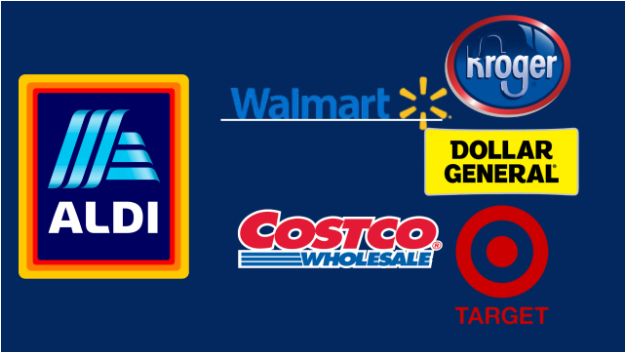
- Kroger (KR): Kroger is one of the largest supermarket chains in the United States and owns several well-known supermarket brands, including Fred Meyer, Harris Teeter, and City Market. Kroger owns a wide range of assets, such as production plants and distribution centers, and has invested in automated warehouses to improve logistics and efficiency. A typical Kroger supermarket is significantly larger than a typical Aldi store and offers a broader product selection, highlighting the difference in scale and complexity between the two retailers. Investing in Kroger stock provides exposure to the traditional supermarket model, which competes with Aldi in certain segments.
- Walmart (WMT): Walmart is the world’s largest retailer, operating a chain of hypermarkets, discount department stores, and grocery stores. Walmart has made significant ecommerce investments and commerce investments, including expanding its online sales channels and leveraging social media platforms like TikTok, to drive enormous growth potential. As one of the world’s largest retailers, Walmart competes directly with Aldi in the discount grocery space and offers a broader exposure to the retail market.
- Costco Wholesale (COST): Costco operates membership-only warehouse clubs that offer a wide selection of bulk groceries, merchandise, and services. While its business model differs from Aldi’s discount approach, Costco also caters to price-conscious consumers and competes in the grocery sector.
- Target (TGT): Target is a general merchandise retailer with a significant focus on groceries. Its differentiated brand and store experience appeal to a broad customer base and offer another avenue for investing in the retail market.
- Dollar General (DG) and Dollar Tree (DLTR): These discount store chains offer a limited assortment of goods at very low prices, competing with Aldi on price sensitivity, although their product mix and store formats differ.
- European Retailers: For investors interested in the European market where Aldi has a strong presence, publicly traded supermarket chains in those regions could be considered. Examples might include companies like Ahold Delhaize (operating in Europe and the US) or Tesco (a leading UK retailer).
- Trader Joe’s: Trader Joe’s is owned by Aldi Nord and is a notable part of Aldi’s international operations, known for its unique product offerings and strong brand reputation.
By investing in these publicly traded companies—Aldi competitors and Aldi’s competitors such as Kroger, Walmart, and Costco—investors can gain exposure to the grocery and retail industries, which are influenced by similar consumer trends and economic factors that drive Aldi’s success.
How to Invest in Aldi Stock
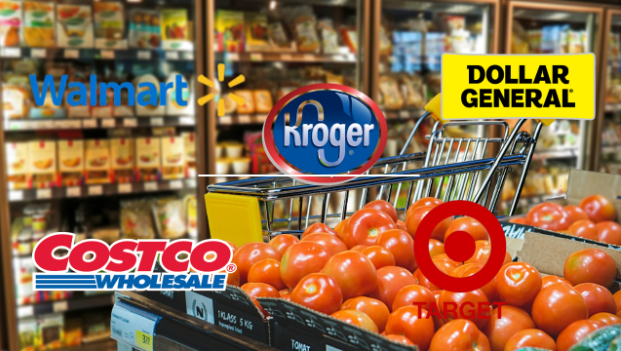
In summary, while Aldi has established itself as a dominant force in the global grocery market with its unique business model, cost efficiency, and growing market share, it remains a privately held company under the ownership of the Albrecht family foundations (Aldi Nord and Aldi Süd). Therefore, direct investment in “Aldi stock” is not currently possible for public investors.
The company’s private structure allows for a long-term strategic focus and shields it from the short-term pressures of public markets. While there are no current indications of an impending IPO, the future could always hold changes.
For investors keen on capitalizing on the discount retail trend and gaining exposure to the grocery sector, publicly traded alternatives such as Kroger, Walmart, Costco, and others offer a pathway to participate in this market. These companies, while different in their specific models, operate in the same competitive landscape and are influenced by similar economic and consumer behaviors.
Ready to Explore Investment Opportunities in the Retail Sector?
The grocery and retail landscape is dynamic, offering various investment opportunities. If you’re interested in learning more about how to strategically position your portfolio within this sector and explore alternatives to unavailable stocks like Aldi, our team at Maverick Trading & Currencies is here to help.
Book a call with one of our recruiters today to discuss your investment goals and discover how we can guide you through the complexities of the stock market.


